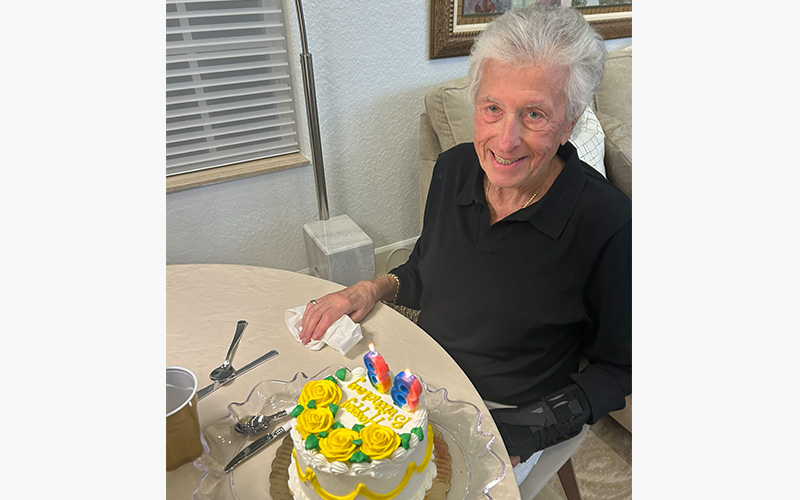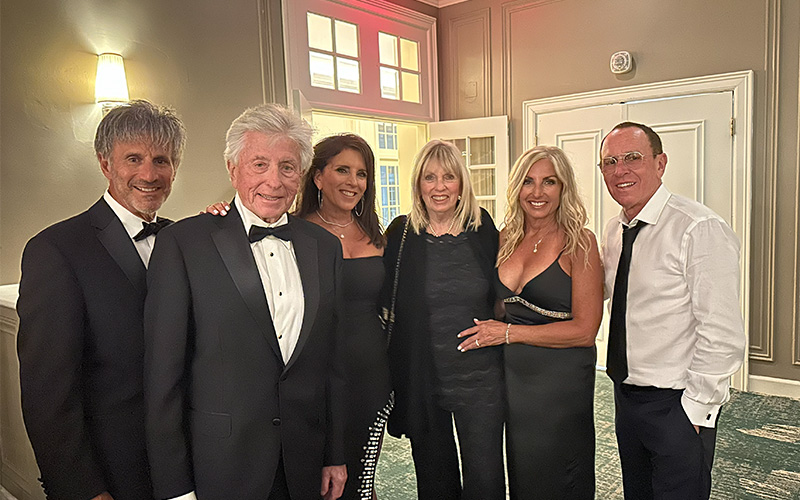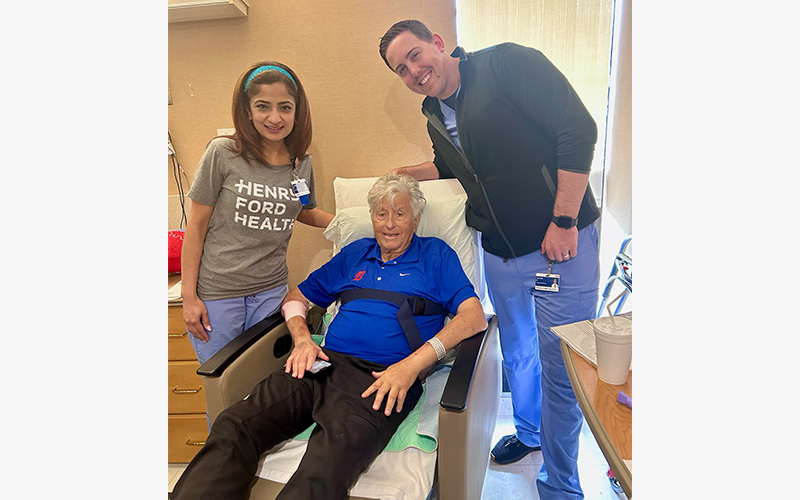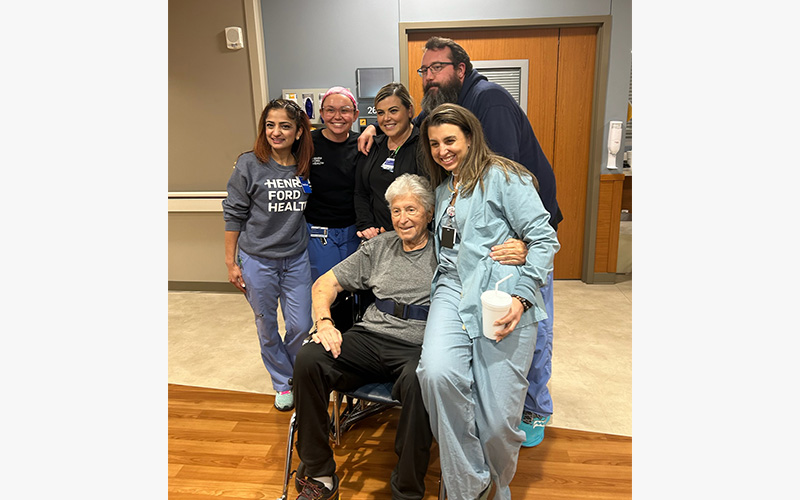The Miracle Man
The pain was sudden, and it hit 87-year-old Cyril Levenson in his throat, chest, neck and back at the same time.
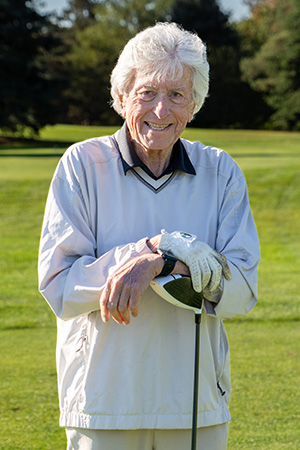
Lois to come downstairs to pick up her car,” says Cyril, now 88. “The next, I’m in intense pain, and I can’t breathe or swallow.”
Cyril, a resident of West Bloomfield, told Lois to take him to the hospital, don’t even wait for an ambulance. The last thing he remembers is getting in her car. She drove him to a local hospital ER.
“The team there told her my aorta had dissected, and they couldn’t do anything,” Cyril says.
The aorta is the largest artery in the body, and it runs from the heart down to the abdomen, supplying blood to the body. Aortic dissection occurs when there is a tear in the inner layer of the aorta, leading to the separation of its layers, which can cause potentially fatal internal bleeding. Cyril had a Type A dissection, which is more dangerous given that it occurs in the upper part of the aorta where it exits the heart.
Finding new hope
Calls were made to get Cyril to another hospital, but they all rejected Cyril’s case either because of his age or the lack of an available operating room.
Until they called Henry Ford Macomb Hospital and spoke with Cardiothoracic Surgeon Raed Alnajjar, M.D.
“Dr. Alnajjar told my family there were no guarantees, and that I might not make it, but he arranged to have me transferred by ambulance to Henry Ford Macomb Hospital,” Cyril says. “I was still unconscious, so Lois had to sign all of the paperwork.”
When Cyril arrived, he was rushed into surgery, where Dr. Alnajjar and his team repaired the aortic dissection. They also replaced his aortic valve, which connects the left ventricle (lower left heart chamber) to the aorta.
Treated like family
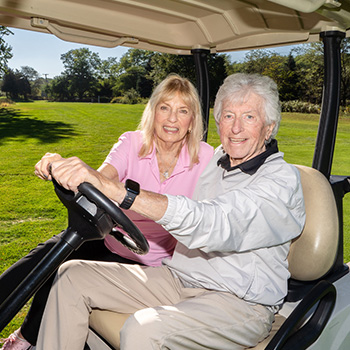 The surgery was a success, and Cyril went into the intensive care unit. He stayed in the hospital for about seven weeks. While he recovered in the ICU, his wife and daughters contacted the rest of the family.
The surgery was a success, and Cyril went into the intensive care unit. He stayed in the hospital for about seven weeks. While he recovered in the ICU, his wife and daughters contacted the rest of the family.
“I have four daughters, four sons-in-law, 16 grandchildren and 9 great-grandchildren,” Cyril says. “They live all over the country, and everyone came.”
His family was impressed with the care they received from the Henry Ford Macomb Hospital staff.
“We felt really special,” Lois says. “They made us feel like family.”
This included arranging for Cyril’s family to have a private room for their Passover dinner, where family brought in food and some of the hospital staff joined them to celebrate the holiday, and his incredible recovery.
“My nephew is a pulmonologist,” Cyril says. “He called me ‘The Miracle Man,’ telling me that only 1 in 10 survive this procedure … ‘and they’re younger than you.’”
Several of Cyril’s other family members are in the medical field, including an ER doctor, a medical resident and a nursing school student. They were all impressed with the quality of his care.
“From the doctors and nurses in the ICU to the therapists who helped me walk again, it was terrific,” Cyril says. “It was a very traumatic time for everyone, but they made my family comfortable.”
In fact, when one of his nurses had a baby, Cyril’s family bought the baby a gift and also sent in food for the staff several times.
Getting back to life
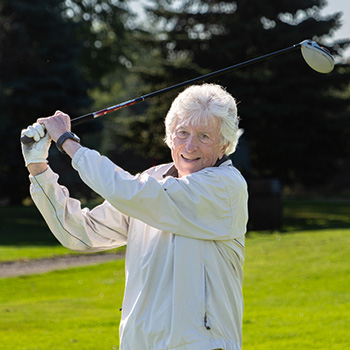 Other than having to return briefly to address a blood clot that he developed, the rest of Cyril’s recovery went well. Now, he’s looking forward to each new year.
Other than having to return briefly to address a blood clot that he developed, the rest of Cyril’s recovery went well. Now, he’s looking forward to each new year.
“That’s my only wish every birthday, to get one more year,” Cyril says.
He’s also determined to make the most of this time.
“I’ve always been active socially, and active in sports,” he says. “Now I’m back to golfing 18 holes each week. We’re not your average 80-somethings.”
As he looks back on his experience, he can’t believe it happened to him.
“I never had any problems with my heart before this,” Cyril says. “But I feel very lucky to have had such great people take care of me. A friend gave me a ‘Miracle Man’ shirt, and that’s how my entire family feels.”
.svg?iar=0&hash=F6049510E33E4E6D8196C26CCC0A64A4)

/hfh-logo-main--white.svg?iar=0&hash=ED491CBFADFB7670FAE94559C98D7798)
